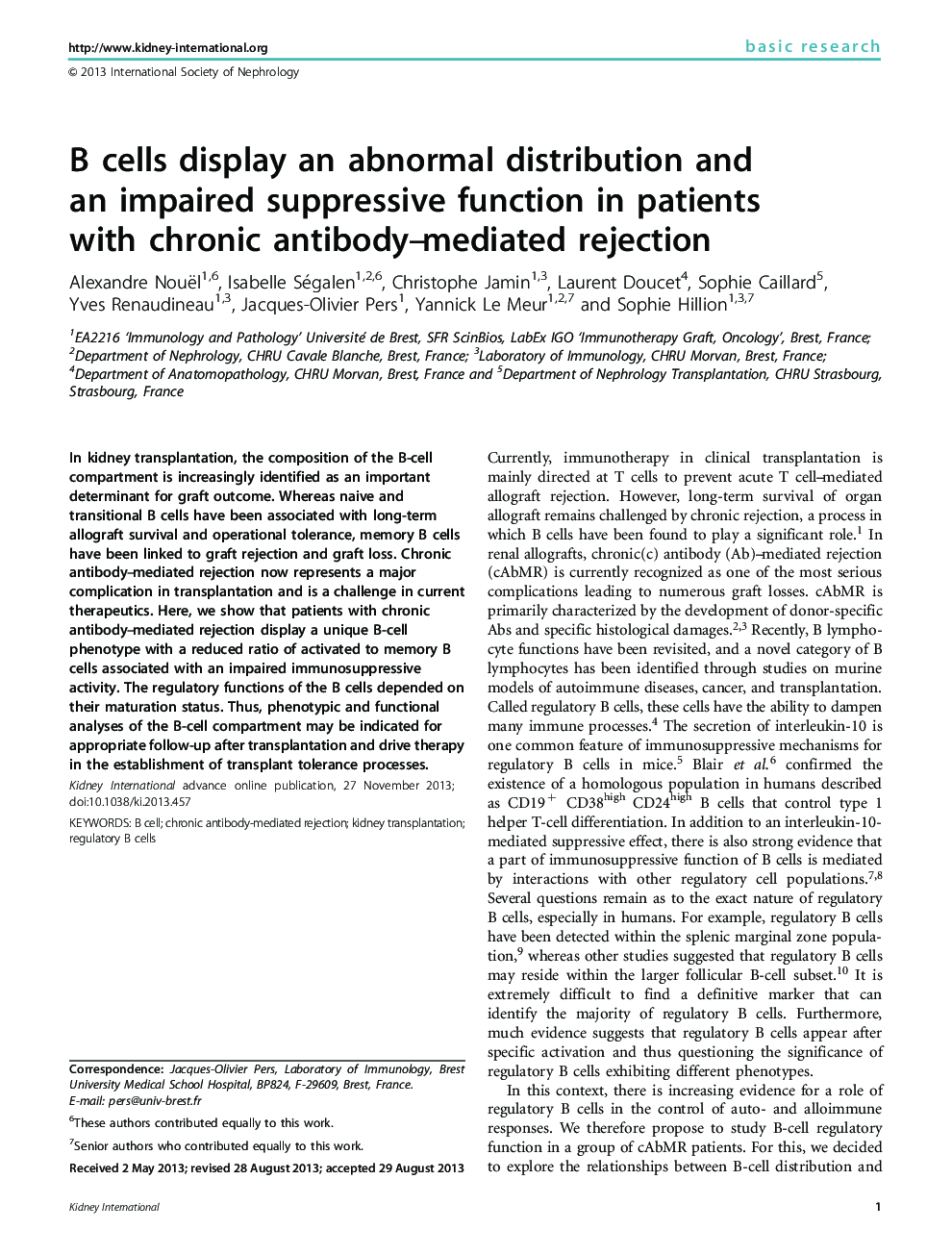| Article ID | Journal | Published Year | Pages | File Type |
|---|---|---|---|---|
| 6160828 | Kidney International | 2014 | 10 Pages |
Abstract
In kidney transplantation, the composition of the B-cell compartment is increasingly identified as an important determinant for graft outcome. Whereas naive and transitional B cells have been associated with long-term allograft survival and operational tolerance, memory B cells have been linked to graft rejection and graft loss. Chronic antibody-mediated rejection now represents a major complication in transplantation and is a challenge in current therapeutics. Here, we show that patients with chronic antibody-mediated rejection display a unique B-cell phenotype with a reduced ratio of activated to memory B cells associated with an impaired immunosuppressive activity. The regulatory functions of the B cells depended on their maturation status. Thus, phenotypic and functional analyses of the B-cell compartment may be indicated for appropriate follow-up after transplantation and drive therapy in the establishment of transplant tolerance processes.
Related Topics
Health Sciences
Medicine and Dentistry
Nephrology
Authors
Alexandre Nouël, Isabelle Ségalen, Christophe Jamin, Laurent Doucet, Sophie Caillard, Yves Renaudineau, Jacques-Olivier Pers, Yannick Le Meur, Sophie Hillion,
